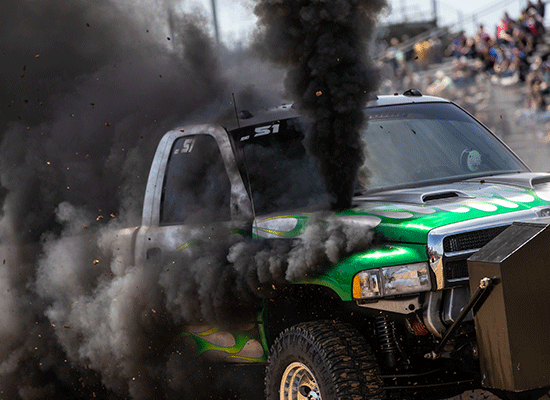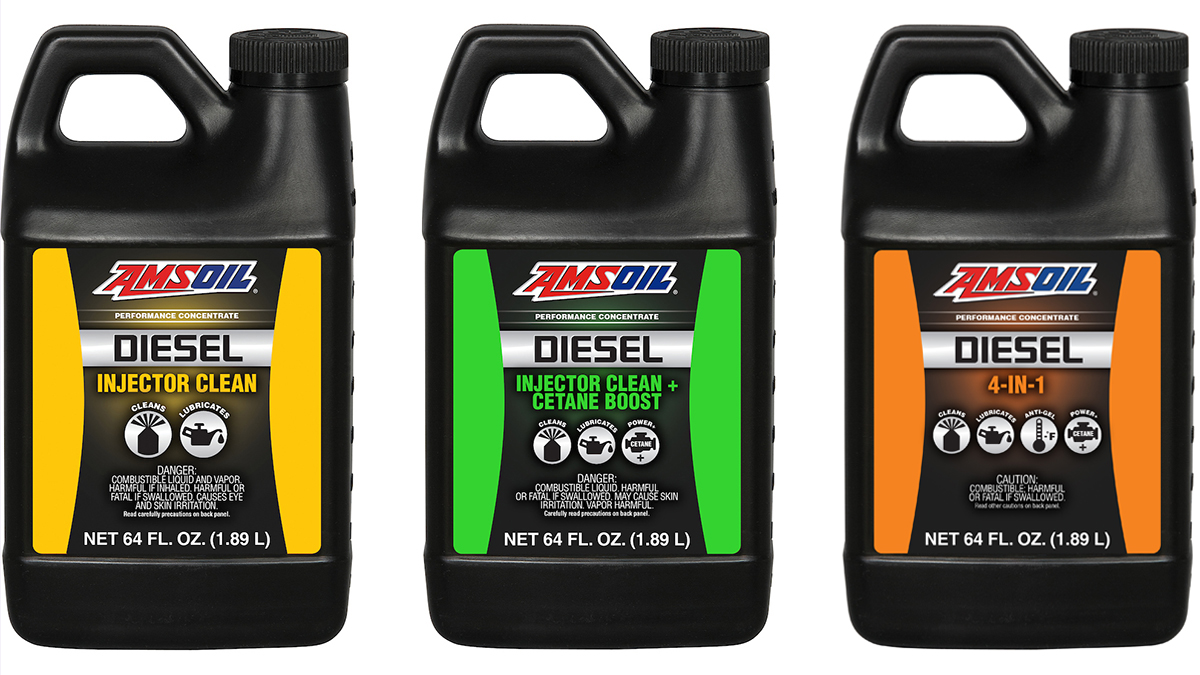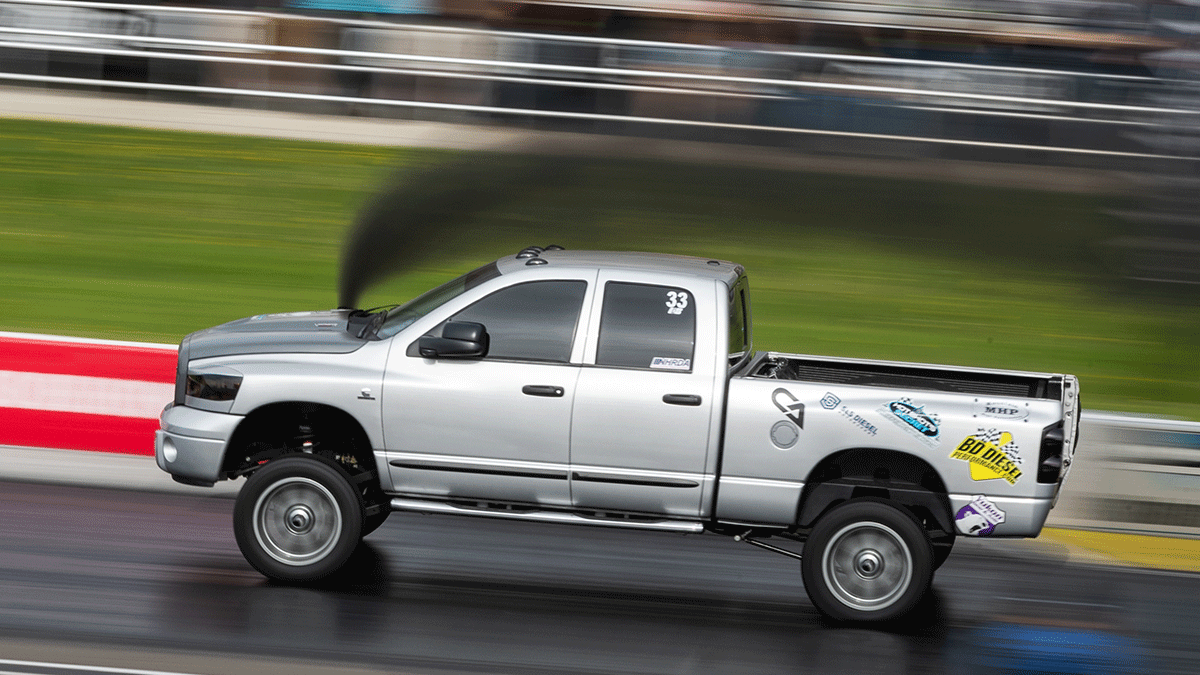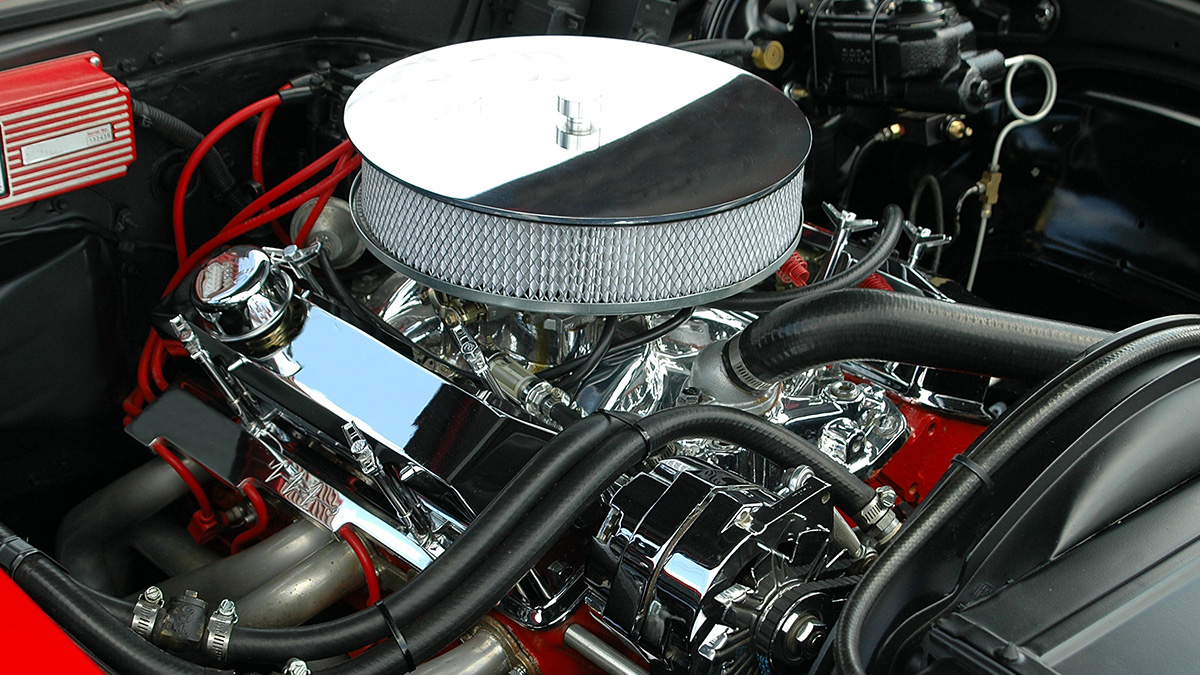Some diesel enthusiasts love to “roll coal,” emitting plumes of black diesel smoke out of their tailpipes.
The practice originated in competitive truck pulls, where competitors typically remove emissions controls and modify their trucks to maximize horsepower and torque.
These competitive trucks require a lot of fuel to spool up their large turbochargers.
When all this extra fuel is added at low rpm before boost is built, some of it goes unburned and produces black smoke out of the exhaust.
That’s why it’s common to see diesel trucks billowing black smoke at the starting line before taking off.
While many enthusiasts roll coal to show off their truck’s horsepower and torque, black smoke coming out of a diesel vehicle could also signify a problem. Modern diesel engines in proper working order should not produce black smoke under most conditions.

Black Diesel Smoke: Common Causes
Fuel-Delivery Problem
The most common cause of black diesel smoke is a fuel-delivery problem. Examine the fuel-delivery system, particularly the injector timing and EGR system. The injectors may be dirty or require replacement, or an EGR valve may need to be replaced.
The most common cause of black diesel smoke is a fuel-delivery problem. Examine the fuel-delivery system, particularly the injector timing and EGR system. The injectors may be dirty or require replacement, or an EGR valve may need to be replaced.
Dirty/Clogged Air Filter
A normal-functioning engine should burn all of its fuel; black smoke means it’s not. Air is just as important as fuel in the combustion process, so it’s important to ensure the engine is receiving enough air. If it’s not, the mixture runs too rich, producing black smoke. Check and replace your air filter as necessary if it’s clogged or dirty.
Bad MAF Sensor
If the air filter checks out and you’re still seeing black smoke, check the mass airflow sensor (MAF). The MAF ensures the correct amount of fuel mixes with the air entering the engine. A faulty MAF may incorrectly measure the air flow, resulting in too much fuel injected into the engine and leading to unburned fuel that exits the exhaust as black smoke.
Bad Turbocharger
The turbocharger plays a crucial role in combustion and power by driving more air into the combustion chamber. A failing turbocharger results in lost power and can cause black smoke to exit the exhaust.
Carbon Deposits
Diesel engines are susceptible to carbon deposits. As the miles accumulate, the more likely the fuel injectors and combustion chamber have developed deposits that negatively affect fuel economy and performance, often resulting in black smoke. This issue can be easily addressed with a quality detergent additive, like AMSOIL Diesel Injector Clean, that cleans the deposits and removes the smoking issue.

AMSOIL Diesel Injector Clean
• Cleans dirty injectors and combustion chambers
• Lubricates pumps and injectors to reduce wear
• Restores power and torque
• Reduces smoke and emissions
• Reduces downtime and maintenance costs
AMSOIL Diesel 4-in-1
• Combines the benefits of AMSOIL Diesel Injector Clean, Diesel Cold Flow and Diesel Cetane Boost in one convenient package
AMSOIL Diesel Injector Clean + Cetane Boost
• Combines the benefits of AMSOIL Diesel Injector Clean and Diesel Cetane Boost in one convenient package






Comments
AMSOIL Lead Technical Writer for more than two decades.
Share: